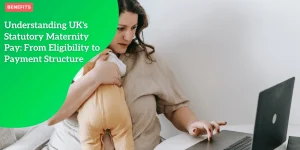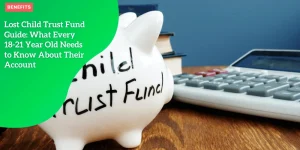Education Alert: Private Schools Warn of Sector Collapse Amid Unprecedented Tax Changes
Anúncios
Understanding the Dual Tax Impact
Starting in January 2024, private schools will face the removal of their current 20% VAT exemption, presenting a significant financial burden to these institutions.
This change means that costs will rise across the board for independent schools, as they will now have to include VAT in their budgets, leading to a direct increase in operational expenses.
Anúncios
Employer’s National Insurance Contributions
Adding to the financial strain, there may also be an increase in employers’ national insurance contributions by 1-2%.
Presently set at 13.8%, this hike could raise additional funds (between £8.45bn and £16.9bn) intended to address the fiscal deficit and support the NHS.
Anúncios
However, the added cost for schools is substantial.
Compounded Financial Pressures
The combined removal of the VAT exemption and the potential increase in employers’ national insurance contributions will create unprecedented financial pressure on private schools.
These two measures together represent a considerable increase in operational costs.
For smaller, specialist schools that operate with already tight budgets, the impact is likely to be particularly severe.
Without significant budget flexibility, many of these schools will be forced to pass these additional costs onto parents through increased fees.
This could mean a significant hike in school fees, potentially making private education unaffordable for many families.
Independent school leaders fear these compounded pressures will force smaller institutions to make difficult decisions regarding staffing, resources, and potentially their very existence.
 Financial difficulty
Financial difficulty
Financial Implications for Schools
Staff Costs and Budget Constraints
Private schools are facing significant financial challenges due to the upcoming dual tax impacts.
Staff costs currently represent over 70% of school expenditure.
Consequently, any increase in employer costs has a direct and substantial impact on school budgets.
The proposed 1-2% rise in employers’ national insurance contributions is expected to increase school budgets by approximately 0.7-1.4%.
Limited Flexibility for Smaller Schools
Smaller specialist schools are particularly vulnerable.
These schools often operate within tightly constrained budgets with little room for additional cuts.
The limited flexibility in their financial planning means that they are more susceptible to financial pressure from the combined effects of VAT inclusion and national insurance increases.
The headteachers of these institutions have expressed concerns that they might be forced to hike fees to cope with the additional financial burdens.
The already strained budgets of private schools are poised to face further pressure.
Next, we will explore how these financial challenges translate into increased school fees and the potential impact on families.
Impact on School Fees and Families
The upcoming removal of the 20% VAT exemption in January 2024 and the potential increase in employers’ national insurance contributions are set to significantly impact school fees and families.
As private schools face the brunt of these additional costs, they are likely to pass them on to parents through fee hikes.
Compounding Effect of VAT Charges
With the planned removal of the 20% VAT exemption, independent schools will be unable to shield themselves from the added expense.
This will directly translate into higher fees for parents.
When schools raise fees to accommodate VAT, the VAT itself will apply to those increased fees, creating a compounding effect that exacerbates the financial burden on families.
Essentially, parents will be paying VAT on top of the newly inflated school fees.
Fee Hikes and Affordability Concerns
As national insurance contributions for employers potentially rise by 1-2%, private schools will experience further pressure to increase fees.
Staff salaries alone represent over 70% of school budgets, and any hike in national insurance directly inflates overall staffing costs.
For smaller specialist schools with limited budget flexibility, this means fee hikes are almost inevitable.
These schools already operate on tight margins, leaving them with little choice other than to transfer the financial load to parents.
The resulting increase in fees could make private education unattainable for many families who depend on small independent schools.
Unlike larger institutions with diversified income streams, smaller schools rely heavily on tuition fees, placing families at the forefront of shouldering the additional costs.
Transition
This escalation in costs for families coupled with broader economic pressures highlights a worrying trend.
The affordability of private education is increasingly at risk, prompting concerns about the future sustainability of the sector under the weight of mounting financial pressures.
Government’s Revenue Generation Strategy
As part of the upcoming fiscal measures, the government aims to tackle the mounting £22bn fiscal deficit and support the NHS.
A key strategy is the increase in national insurance contributions, which could raise significant funds.
National Insurance Contribution Increases
The government plans to increase employers’ national insurance contributions by 1-2%.
This would generate between £8.45bn and £16.9bn over the 2025 to 2026 tax year.
These funds are crucial in addressing the fiscal deficit left by the previous administration while ensuring continued financial backing for the NHS.
VAT Changes
The removal of the 20% VAT exemption for private schools from January 2024 is intended to bolster state education.
The funds from this VAT inclusion are earmarked for the recruitment of 6,500 new teachers for state schools.
This policy aims to level the playing field between private and public education sectors.
Expected Revenue Impact
Combining the anticipated national insurance increases with the VAT changes creates a substantial revenue stream for the government.
By closing the VAT loophole for private schools, the government gains significant funds specifically allocated to enhance the public education system.
This diversified approach is projected to create dual benefits: reducing the fiscal deficit and improving public sector services.
The financial strategy put forth underscores the government’s commitment to long-term financial stability and robust public service funding.
This policy direction aims to ensure balanced educational opportunities for all children while addressing the broader economic challenges.
Given these impending changes, the private education sector must navigate a path fraught with financial pressures, potentially reshaping its landscape over the coming years.
Sector’s Future Concerns
The financial strain on private schools has reached a critical point, as the combined impact of numerous cost increases threatens to destabilize the entire sector.
School leaders are raising the alarm about the severe financial pressures they face, which could push the system to the brink of collapse.
Financial Pressures and Increased Costs
Independent schools are grappling with the removal of the 20% VAT exemption starting January 2024, alongside a potential 1-2% increase in employers’ national insurance contributions.
These changes are expected to increase school budgets by 0.7-1.4%, with staff costs, already representing over 70% of expenditure, becoming even more burdensome.
The cumulative effect of these financial shocks, compounded by rising business rates and high inflation, leaves schools with little room to maneuver.
Risks to the Teachers’ Pension Scheme
Another significant concern is the potential withdrawal from the Teachers’ Pension Scheme (TPS) due to its rising costs.
Contributions have already surged by five percentage points, and further financial pressures could make participation unaffordable for many independent schools.
If additional taxes were imposed on employer pension contributions — speculated to raise around £17bn annually — this would exacerbate the situation and likely result in more schools exiting the TPS.
Vulnerability of Smaller Specialist Schools
Smaller specialist schools are particularly vulnerable.
Operating on tight budgets, these institutions have limited flexibility to absorb additional costs and may be forced to pass expenses onto parents through fee hikes.
This is particularly problematic as these schools do not typically attract affluent families, and the rising costs could push private education out of reach for many.
The anticipated 400% rise in business rates and cumulative 50% increase in operational costs over four years illustrates the extent of the financial crunch.
System Breakdown Warning
Leaders warn that there is “only so far that the system can be squeezed before it starts to fall apart.”
The series of financial pressures has left many schools in a precarious position, unable to continue without significant adjustments that may compromise the quality of education or require prohibitive fee increases for families.
As private schools struggle to navigate these turbulent times, the continuing financial burdens present a dire scenario for the sector’s future stability.






